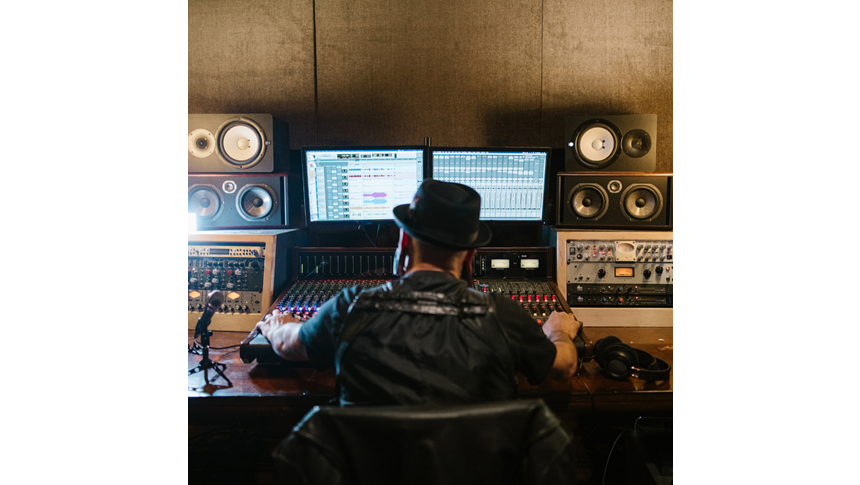Today’s global music industry is fast-paced. Each year brings along new platforms and technology that reshape popular music trends.
The musical world is also a lot more inclusive today with members of the public now having access to music production tools and a plethora of tutorials and resources.
While predicting the future music landscape can be tricky, discussing existing music production trends can help us understand the general direction the industry’s heading. Let’s delve into the top music trends in the UK that you can expect to see ahead in this year.
Why is it important to be aware of the latest music trends?
Being able to strum the chords of your guitar or being familiar with autotune technology will not automatically make you a successful music producer.
There are many financial and practical intricacies in the music business that aren’t apparent until you actually start working in the industry. Even then, your career will involve constantly keeping up with the latest technological or social changes impacting the global music industry.
Keeping yourself aware of the latest music production trends can give you a competitive advantage. You can update your business management and music production skills to keep yourself relevant in the industry.
Additionally, staying ahead of the industry trends can also give you subject expertise, making you more sought-after in the industry.
7 industry trends you should be aware of as a musician or music producer in 2022
With the musical landscape radically changing every year, keeping track of the latest music production trends is the only way to keep yourself relevant in the field. Here are some of the top music trends in 2022 that should be dominating the markets this year.
- Acoustic instruments are becoming popular again: While automated sound effects are quite common in today’s songs, acoustic instruments like the guitar are making a comeback. Some of the most famous examples include “Despacito” and “Shape of You”, both of which feature an acoustic guitar track.
- Single tracks are being composed by multiple songwriters: Although this trend has been around for a while now, it has become more popular in the last few years. Singles by multiple song composers or writers are featuring more, owing to the rise of collaboration projects within the industry. For instance, more than half of the songs on this year’s Billboard Top 10 Chart have been created by five or more songwriters.
- Artists are stepping away from standard chord progressions: Standard chord progressions are becoming a thing of the past as songwriters are embracing more unusual and complex chord progressions. Using them is proving to be a good way to switch the tone of different songs and avoid them from sounding similar to other artists’ work.
- Social media apps like TikTok are becoming part of the mainstream music industry: According to a new study by Viberate, social media apps like TikTok are expected to reshape the music business completely this year. These platforms are becoming the launchpads of new musical talent like Tokischa, Paquin and Crawlers.
- Sync licensing is gaining traction in the music industry: Sync licensing refers to the licensed usage of existing music in other media formats such as video games and TV shows. Sync licensing has allowed artists to open up multiple channels of revenue generation and make their work popular across different audiences.
- Songs are on their way to becoming longer: Although our attention spans are becoming shorter, we seem to be liking longer songs. There is a recent industry tendency to stretch out songs beyond a standard three minutes. For instance, the famous “Girls Like You” by Maroon 5 is just shy of four minutes.
- The monetisation of live streaming performances is a legitimate thing now: With live streaming becoming a mainstream trend, the sale of music CDs and records aren’t the major way of revenue generation. New-age artists are finding new ways to monetise their work through avenues such as TikTok tipping.
Other popular trends include the rising popularity of multilingual artists, an increase in the number of online music teachers, and a move towards personalised music experiences.
How can you keep yourself updated with the latest music production trends?
Working as an artist or a music producer can help you learn about the current music production trends in the industry. You should consider pursuing a master’s in music production to update your knowledge of the business.
A comprehensive music production degree can help you manage multiple music projects across different production houses or channels. If you want to grow as a solo artist, this music production course in the UK can also help you establish your own music production business.
The London College of Creative Media (LCCM) offers a great BMUS (Hons) Contemporary Music Performance and Production programme, which might be relevant. This music production course in London is designed to equip you with well-rounded music production and marketing skills that can help you build a lasting music career.
Whether you want to enter the music industry as an instrumentalist, media composer or music producer, this programme can help you with the right industry contacts. You can also get additional networking opportunities through the extra-curricular activities at LCCM, such as choir, jazz improvisation and drumline.
Click here to enrol in the music production programme at LCCM today!
